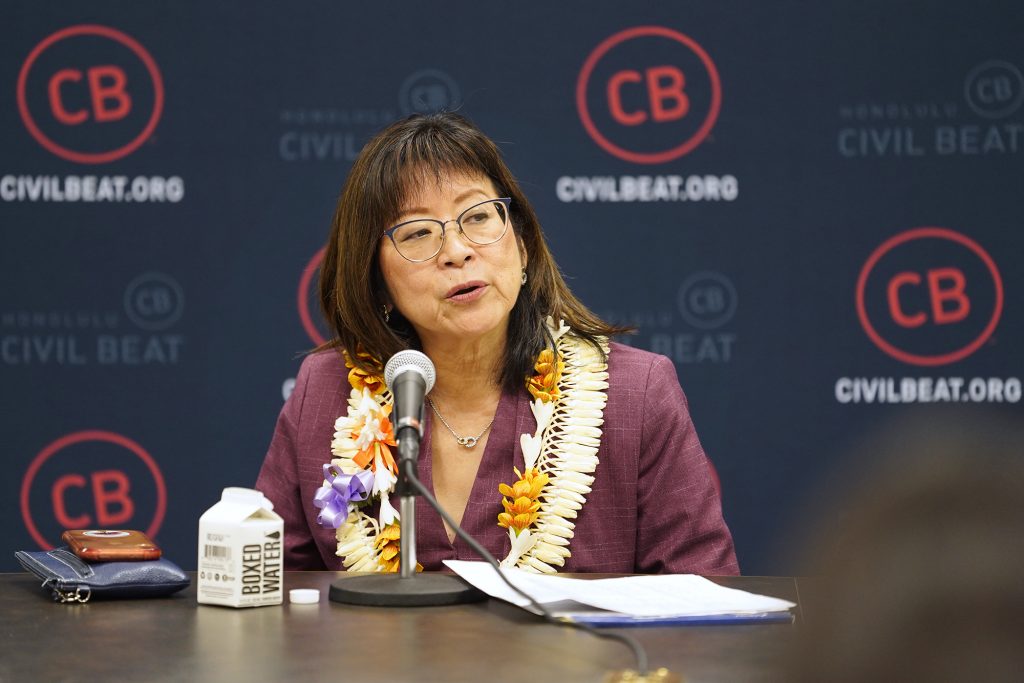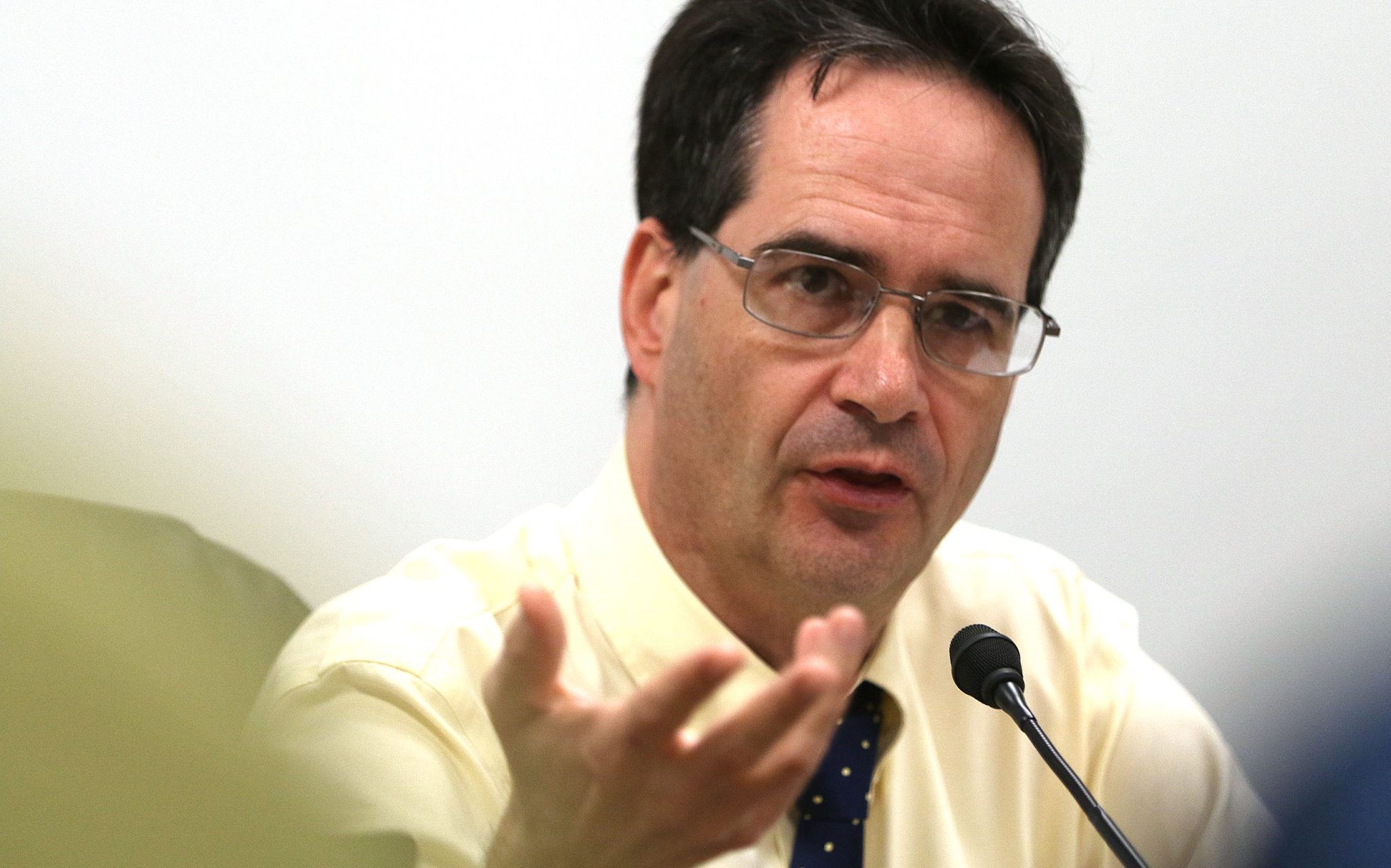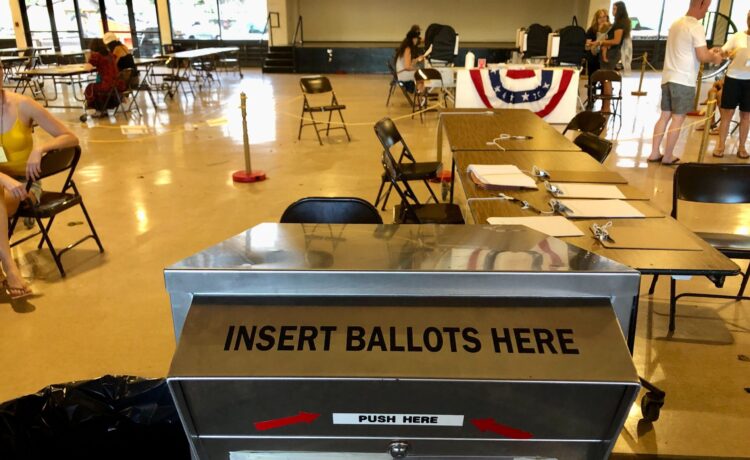Give Nadine Nakamura credit.
One of the most popular government reform bills sailed through the Legislature last session with practically no opposition. Everyone, it seemed, was ready to finally challenge the oppressive power of incumbency in Hawaii by spending $30 million for full public financing of candidates’ campaigns.
Alas, amendments caused different versions of Senate Bill 1543 to be overwhelmingly passed by the House and the Senate. That landed it in the darkly secretive world of conference committee, where it was repeatedly downsized before being killed altogether — with no public explanation.
The proposal is back this session and again wildly popular with good government organizations as Senate Bill 2381 heads for its first hearing Tuesday.
But this time a high-profile Democratic legislator has publicly announced her opposition. Nakamura, the House majority leader, even fessed up to a partisan reason for her stand: She contends it will help Republicans more than Democrats.
There was speculation that this belief is what led to the proposal being skewered behind closed doors last session. But no one came out and said it publicly.
The notion is debatable. What’s more, it shouldn’t matter even if it’s true.
Like the bill states in its opening paragraph: “The common belief is that the current campaign finance system used in Hawaii (and most other states) unfairly favors a small handful of wealthy donors who use their donations to buy access to candidates and elected officials.”
It’s way past time to fix that in the islands.
Still, Nakamura has struck a blow for transparency by publicly opposing the measure in the session’s opening days, instead of secretly in its closing days.


‘Why Would We Want To Do That?’
Nakamura explained her opposition during a Civil Beat legislative preview at the Capitol. She cited the 2022 governor and lieutenant governor races as examples of how the leading Democratic candidates raised far more money than their Republican counterparts.
If all those candidates had qualified for — and agreed to accept — the full public funding as proposed, they would have had equal amounts to spend on their campaigns.
“Why would we want to do that?” Nakamura asked. “I have some concerns about that and I believe taxpayers once they look at this data would raise similar concerns.”
She later added, “I think we would be giving an unfair amount — taxpayer dollars — to a Republican who would not on their own have the support from the community to raise these funds.”
The proposal is intended to level the playing field for all candidates, not just Republicans. And to qualify for public funding, candidates would first have to demonstrate that they were viable by collecting a minimum number of $5 donations from individual voters. The amount of such contributions would vary depending on the office and top out at a minimum of 6,250 for gubernatorial candidates.
“I think we would be giving an unfair amount — taxpayer dollars — to a Republican who would not on their own have the support from the community to raise these funds.”
Rep. Nadine Nakamura
Candidates could also choose not to participate in the program. In 2022, the winner of the governor’s race, Josh Green, raised $4.25 million. The maximum he would have been allowed to spend if he had been publicly funded under the bill is $2.5 million.
So he and other well-heeled Democratic candidates would face tough choices of conducting business as usual or accepting the public funds — with the resulting assurance that they won’t be beholden to private contributors.
It really shouldn’t be disconcerting for a candidate to face an opponent who has the same amount of money to spend. If they meet on even financial terms and battle it out over the issues, the electorate is better served.


‘You Would Owe Voters For Your Position, Not Private Donors’
Sen. Karl Rhoads, who introduced the public finance bills both sessions, doesn’t buy that Republicans would be the primary beneficiaries.
“Using the full public financing system spelled out in my bill will require a grassroots effort that Democrats in Hawaii have always been better at,” Rhoads said. “For a state Senate race you would need to get 200 $5 contributions from residents of your district. Anyone who has ever knocked on doors knows this could take hundreds of hours if you can do it at all.”
“Any GOP candidate that could do that is going to be a formidable opponent under any system,” he said. “The advantage of this system would be that you would owe voters for your position, not private donors whether you’re a Democrat or a Republican.”
Rhoads is chair of the Senate Judiciary Committee that will conduct Tuesday’s hearing, so there isn’t much suspense as to the outcome. From there it will move to the Ways and Means Committee, which unanimously approved last year’s bill.
“Using the full public financing system spelled out in my bill will require a grassroots effort that Democrats in Hawaii have always been better at.”
Sen. Karl Rhoads
The real obstacles to the bill are the same as last year. If the chambers pass different versions, the measure could again get axed behind closed doors during conference committee.
Nakamura’s much earlier opposition this time around could actually increase the bill’s chances if her concerns are addressed sooner in the session. Another new dynamic is that House Speaker Scott Saiki has introduced a companion measure, House Bill 2321.
Saiki, who has faced tough challenges from reform candidate Kim Coco Iwamoto in the last two primaries, did not respond to a request for comment about why he’s joined the public finance effort.
Good government groups were giddy about it, issuing a breathless statement claiming the speaker’s move is a big boost for what they call the clean elections bill.
Rhoads was more subdued, but did say, “It’s always an advantage to have the speaker introduce your companion bill.”


















